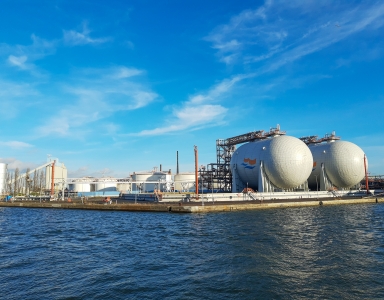BBI JU Info Day 2018
Last week Hezelburcht consultants joined the official launch of the fifth Bio-based Industries Joint Undertaking (BBI-JU) calls in Brussels. During the day, information was provided about the BBI JU initiative, results of the previous calls and all aspects of the call process.
Highlights of BBI JU call 2018
Last year the Strategic Research and Innovation Agenda (SIRA) of the BBI JU was adjusted, based on extensive consultation with the industry, the European Commission and other public and private stakeholders. Furthermore, lessons learned from previous calls were integrated in the SIRA. In 2018 the BBI JU moves away from a strict biomass feedstock ‘push’ based on the traditional value chains. On the contrary, it moves towards a demand for biomass processing in order to respond adequately to a ‘pull’ from the end markets. The 2018 calls are furthermore closely linked to the renewed defined strategic orientation of the SIRA.
- Feedstock: Foster supply of sustainable biomass feedstock to feed both existing and new value chains.
- Process: optimize efficient processing for integrated biorefineries through research, development and innovation.
- Products: Develop innovative bio-based products for identified market applications.
- Market uptake: create and accelerate the market uptake of bio-based products and applications.
In 2018 the call has an indicative budget of € 115 million. This is subdivided into:
- 11 Research and Innovation Actions (RIA) with a budget of € 41 million;
- 3 Coordination and Support Actions (CSA) with a budget of € 2 million;
- 5 Innovation Actions Demonstration (IA-DEMO), demo-scale production facility, with a budget of € 30 million; and
- 2 Innovation Actions Flagship (IA-FLAG), first-of-a-kind application, large-scale production facility, with a budget of € 42 million.
An overview of all call topics can be found in the Annual work plan.
Research and Innovation Actions
Hezelburcht would like to highlight five RIA topics, which can be particularly of interest for universities or research institutes. We selected these calls as the technology readiness level (TRL) may be as low as 1 (basic principles observed) or 2 (technology concept formulated) at the start of the proposals. It is rather exceptional that projects with such a low TRL are funded within this pillar of Horizon 2020.
- BBI 2018 SO2.R4 Apply advanced biotechnologies to convert biomass that contains inhibitors into high value-added chemicals and materials. The specific challenge of this topic is to better exploit microorganisms that are resistant to inhibitors.
- BBI 2018 SO2.R5 Develop innovative single-step processes for conversion of biomass feedstock into multiple readily usable intermediate streams. The specific challenge of this topic is to achieve single-step technologies able to make biomass fractions and/or first conversion products available.
- BBI 2018 SO2.R7 Electrochemical processes for bio-based monomers and polymers. The specific challenge of this topic is to exploit surplus electric energy for the inexpensive electrochemical conversion of biomass feedstock and prepare this technology for upscaling.
- BBI 2018 SO2.R8 Develop adequate computational systems for modelling the design, start-up, scaling-up and continuous improvement of bioprocesses involving microorganisms. The specific challenge of this topic is to design and apply reliable and robust computational modelling approaches for bioprocesses.
- BBI 2018 S03.R9 Develop technologies and systems to produce bio-based aromatics that outperform fossil-based counterparts. The specific challenges of this topic is to increase the process yields of aromatics from sustainable biomass sources able to outperform fossil based counterparts.
For all calls it is important to select a sustainable biomass supply chain, that can integrate with and does not offer competition to the food chain, and causes neither indirect land use change nor water and soil health imbalances.
More information about the BBI JU grant programme? Please do not hesitate to contact us!




